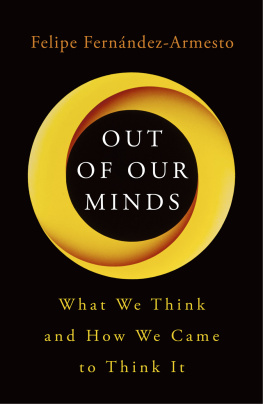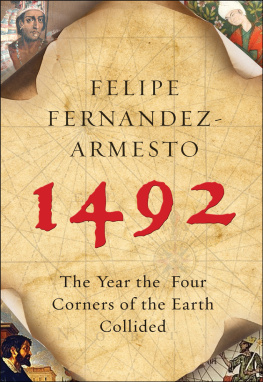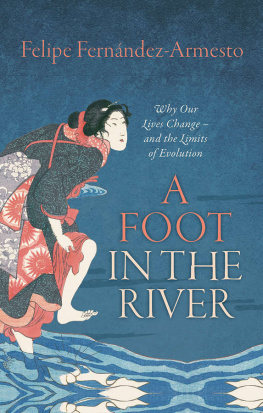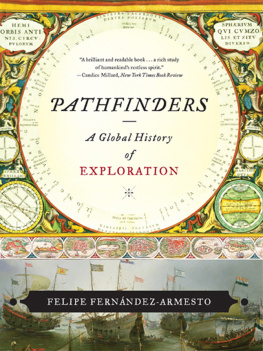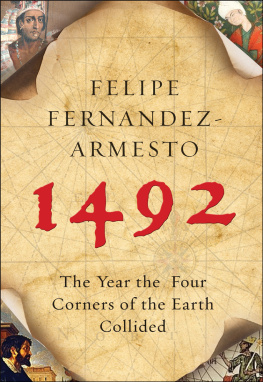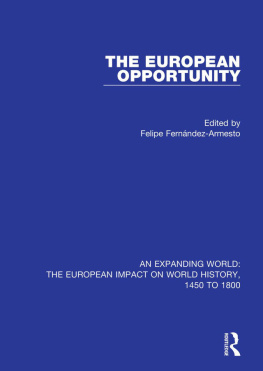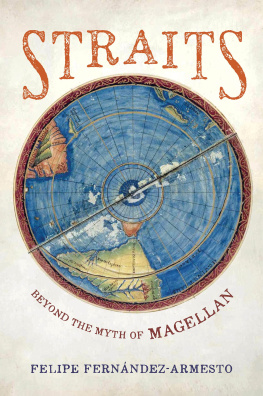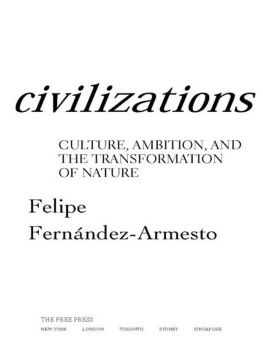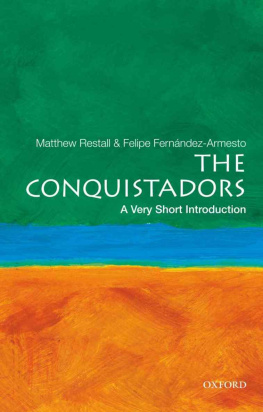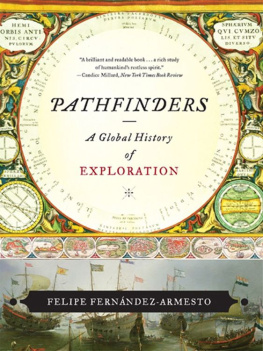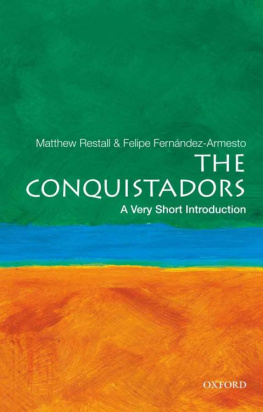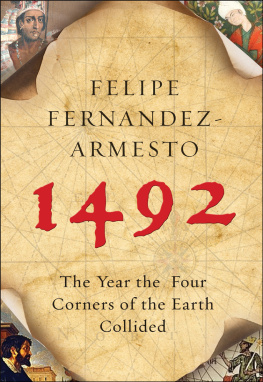Fernández-Armesto - Truth: a history and a guide for the perplexed
Here you can read online Fernández-Armesto - Truth: a history and a guide for the perplexed full text of the book (entire story) in english for free. Download pdf and epub, get meaning, cover and reviews about this ebook. City: New York, year: 2001, publisher: St. Martins Press;St. Martins Griffin, genre: Art. Description of the work, (preface) as well as reviews are available. Best literature library LitArk.com created for fans of good reading and offers a wide selection of genres:
Romance novel
Science fiction
Adventure
Detective
Science
History
Home and family
Prose
Art
Politics
Computer
Non-fiction
Religion
Business
Children
Humor
Choose a favorite category and find really read worthwhile books. Enjoy immersion in the world of imagination, feel the emotions of the characters or learn something new for yourself, make an fascinating discovery.

- Book:Truth: a history and a guide for the perplexed
- Author:
- Publisher:St. Martins Press;St. Martins Griffin
- Genre:
- Year:2001
- City:New York
- Rating:4 / 5
- Favourites:Add to favourites
- Your mark:
- 80
- 1
- 2
- 3
- 4
- 5
Truth: a history and a guide for the perplexed: summary, description and annotation
We offer to read an annotation, description, summary or preface (depends on what the author of the book "Truth: a history and a guide for the perplexed" wrote himself). If you haven't found the necessary information about the book — write in the comments, we will try to find it.
Fernández-Armesto: author's other books
Who wrote Truth: a history and a guide for the perplexed? Find out the surname, the name of the author of the book and a list of all author's works by series.
Truth: a history and a guide for the perplexed — read online for free the complete book (whole text) full work
Below is the text of the book, divided by pages. System saving the place of the last page read, allows you to conveniently read the book "Truth: a history and a guide for the perplexed" online for free, without having to search again every time where you left off. Put a bookmark, and you can go to the page where you finished reading at any time.
Font size:
Interval:
Bookmark:
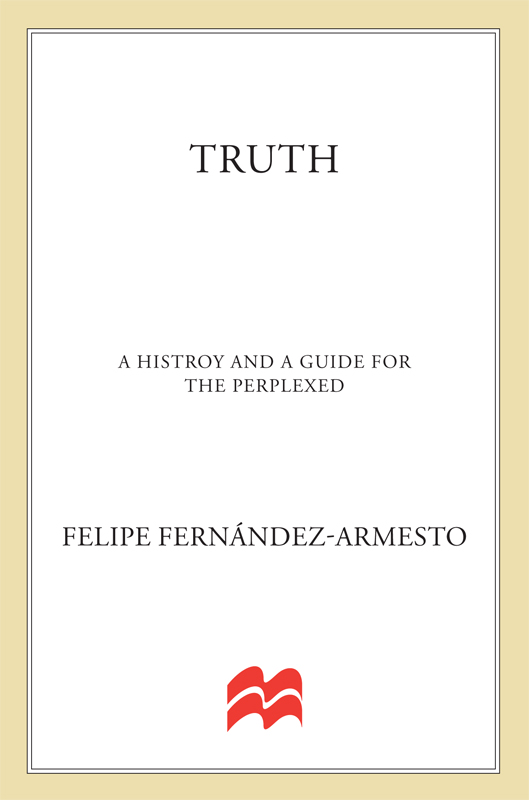

The author and publisher have provided this e-book to you for your personal use only. You may not make this e-book publicly available in any way. Copyright infringement is against the law. If you believe the copy of this e-book you are reading infringes on the authors copyright, please notify the publisher at: us.macmillanusa.com/piracy.
Contents
If God held all truth concealed in his right hand, and in his left hand the persistent striving for the truth and should say, Choose! I should humbly bow before his left hand and say, Father, give me striving. For pure truth is for thee alone.
Gotthold Lessing
Truth is the same thing to the understanding as music to the ear or beauty to the eye.
G.N. Clark
P REFACE
Most western parents feel guilty about Santa Claus. When the time comes to face the question about whether Santa really exists, they feel like slayers of childrens innocence or exploiters of their credulity, or both. In cultures without Santa, other mythical gift-bearers generate similar family crises.
One mother I know cheerfully admitted that the whole story was hokum and forfeited her childrens trust for the rest of her life. A father of my acquaintance tried to stress the poetic truth of the tale and faced an embarrassing interrogation about his hocus-pocus with Santa suits, Christmas stockings and half-eaten mince pies. Another said, Its true about Santa the way its true in the book that Long John Silver was a pirate. So its not true, his little boy replied. An academic couple, after discussing it thoroughly between themselves, decided to tell their children, Its true that Santa brings you your presents in the same way that we speak of the wind hurrying or the sun smiling. The little boy and girl, who concluded that the sun and wind exist and that Santa does not, never forgave them for this evasion.
A schoolmaster who taught my own children and had a very pious little girl tried saying that the Santa story was a parable: You dont suppose, he said, that the things Jesus told in the parables actually happened, do you? The child ceased to be pious. Fellow-Catholics gave me rival advice. Tell your boys, one said, that the Santa story is an attempt to express the divine love that is reflected in parents love for their children. I felt this was good doctrine but that there was no place for Santa in it. Of course Santa exists, the other asserted. Hes Saint Nicholas, mediating for children. I was prepared to admit this but felt that it tended to make the image of the gift-bearer pagan and abominable which, I suppose, it is. I still feel the Santa tale is more than just another of the falsehoods we invent to manipulate our victims but I have not yet found the sense in which it is true or a way of expressing it which exactly fits the facts.
This book is about the quest for language that can match reality. The story is not over yet, and we do not know whether it will end in triumph or tragedy. The pursuit of truth has been a long-standing, widely shared project of mankind. Now a lot of us seem to have abandoned it. Suspicions that reality is intractable and inexpressible have always been around. As far as we know, they have never been as widespread or as influential or as corrosive of the very concept of truth as they are today.
Against the background of the history of the truth-quest, the scale of current indifference looks like a sudden, uncharacteristic and dangerous novelty. Embraced with conviction, the quest has always been a source of inspiration and drive. It has made progress happen and civilization work. We cannot be sure of getting any further ahead or even of surviving much longer without it. A review of the history of the concept of truth may help to explain how we got into this predicament and suggest clues about what might happen next. At present, common sense is caught in the cross-fire of a culture-war between religious extremists, who think they know the truth, and secular nihilists, who think it can never be known. My hope is to put our crisis in context; to reassure readers that the search for truth is still on and leave relativists and fundamentalists where they belong on the margins of history.
In tackling an unprecedented challenge without previous work to guide me without even having many monographs on which to draw I have to take an experimental approach and can only provide a framework-essay, not exhaustive coverage. Some practical compromises are made for the sake of brevity and clarity. Cultures I know well or which are close to home for me are inevitably treated more fully and less uncertainly than those which are more remote; but this seems better than leaving the latter out altogether. The obvious overlaps with the history of concepts related to truth, like knowledge and reality, are not laboured. Nor do I make more than selective use of the surprisingly copious literature about the history of mendacity, equivocation and deception.
This is a book about truth in society; it is not a history of what individuals, however gifted, have thought about truth. Though individual great thinkers play a big part, they are called in for the sake of theories which have inspired assent, commanded consensus or seeped into received wisdom. For the purposes of the book, part of the interest in truth-finding techniques lies not in their efficacy but in how they become institutionalized. In Chapters One and Two much of the evidence is anthropological, as I argue (no doubt to many demurs) that this is a valid method for reconstructing early thought. At moments throughout the book, I return the reader to ethnographers worlds, but Chapters Three and Four are increasingly dominated by great texts, because these were the sources of influential ideas in the places and periods covered.
The result has, for a writer, all the temptations and traps of interdisciplinary work. This book combines readings in history, philosophy and anthropology and even, to a small extent, in psychology. It touches peoples whose languages I do not know and of which my knowledge is necessarily only very general. I say this not to excuse the books shortcomings, or to trail for praise for music like the lovers and the bards, but to invite corrections where I have made mistakes and suggestions where I have left important things out.
Instead of attempting total coverage or arraying comprehensive examples, or trying to impose a chronological treatment on a subject to which it is unsuited, I trace changes and continuities in the history of concepts of truth through vignettes: instances of individuals, groups or episodes, depicted in their real circumstances, at intervals throughout history. The result is intended to show how the way people conceived truth interacted with the worlds they inhabited, without as I argue departing from a universal tradition. Chapter Two, for instance, is narrated between sketches of Zande oracular practices, nineteenth-century American and European spiritualism, Chinese Buddhist monks quests for scriptures, the discovery of the Magdalen papyrus and the intuitive experiences of St Augustine and Descartes.
I try to make the language resolutely non-technical. Because I draw on disciplines in which rival jargons jostle for a place, I look for a lexicon of my own based on traditional usage. This is not immodest, but necessary; the technical languages are confusing because the same things are called by different names by rival schools and the same terms are assigned conflicting meanings.
I feel obliged to Alistair Crombie, who assured me that a book on this subject would be useful, then died in paradisum deducant te angeli and to the Athenaeum, where I wrote most of it, looking over a grove:
Font size:
Interval:
Bookmark:
Similar books «Truth: a history and a guide for the perplexed»
Look at similar books to Truth: a history and a guide for the perplexed. We have selected literature similar in name and meaning in the hope of providing readers with more options to find new, interesting, not yet read works.
Discussion, reviews of the book Truth: a history and a guide for the perplexed and just readers' own opinions. Leave your comments, write what you think about the work, its meaning or the main characters. Specify what exactly you liked and what you didn't like, and why you think so.

